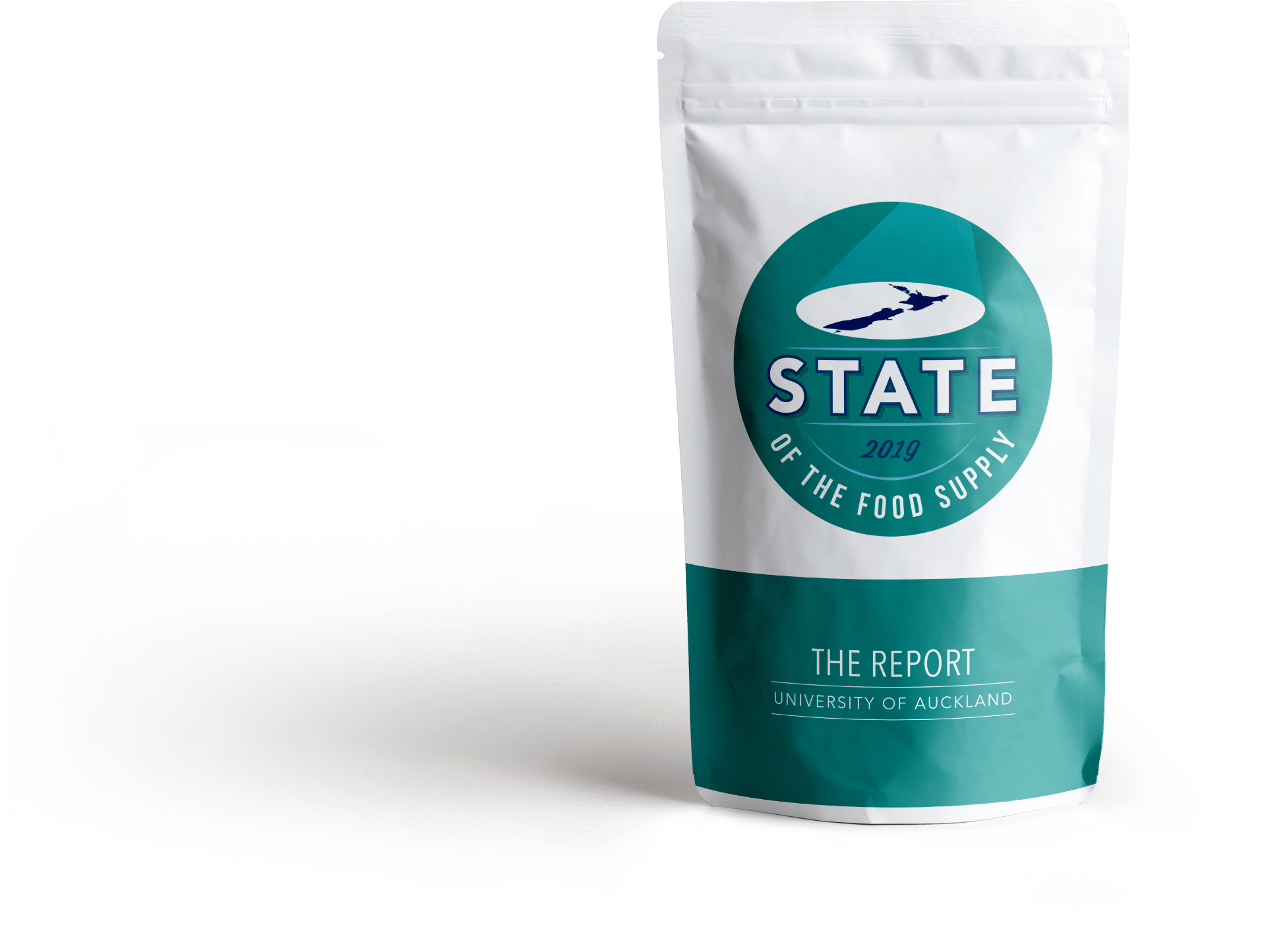State of the Food Supply
The State of the Food Supply is an annual report that provides a snapshot of the healthiness of a country’s food supply. Using data collected on most packaged foods in supermarkets, the healthiness of products is analysed by Health Star Rating, as core or discretionary, by level of processing and by key nutrients (energy, sodium, sugar, saturated fat). The healthiness of product portfolios of leading packaged food and beverage manufacturers is presented. Reports on the state of the Australian food supply and the New Zealand food supply were published in 2019.
A new report FoodSwitch: ‘The State of the Food Supply’ has been released by The George Institute for Global Health. The annual ‘snapshot’ of the state of the Australian packaged food and beverage supply, looks at more than 32,000 products and highlights the changing nutritional composition of key Australian products and food categories.. Further, the report highlights the opportunities for food manufacturers and retailers to improve the nutritional quality of the food supply including:
- benchmarking the nutrient composition of their portfolios against best-in-category equivalents for levels of energy, saturated fat, sugar and sodium – food manufacturers must take responsibility for the healthiness of all the foods they are making and marketing.
- take a more active role in improving the healthiness of the Australian food supply. Retailers could set minimum requirements for the healthiness of the foods they stock and promote in-store and could provide Health Star Rating shelf labelling for all products – as the gatekeepers to Australian food purchases, retailers have the opportunity to help every Australian buy healthier.
The goal of this report is to support government, business and community efforts to help Australians eat better diets.
Media release for launch of The State of the Food Supply – Australia
This State of the Food Supply report provides the first annual snapshot of the healthiness of the NZ packaged food supply . Researchers analysed over 13 000 packaged foods and beverages in New Zealand supermarkets. Nutritional quality was assessed by the Health Star Rating, classified as core or discretionary, by level of processing and nutrient composition. The product portfolios of leading packaged food and beverage manufacturers were assessed.
Three-fifths of products had a Health Star Rating under 3.5, half are considered discretionary (not a necessary part of the diet) and seventy percent were considered ultra-processed.
The authors recommend the Health Star Ratings should be mandatory on labels, the Government should set targets for voluntary reformulation of composition, food manufacturers should increase the proportion of minimally processed foods in their portfolio and food retailers should continue to take an active role in improving the healthiness of the NZ food supply.

